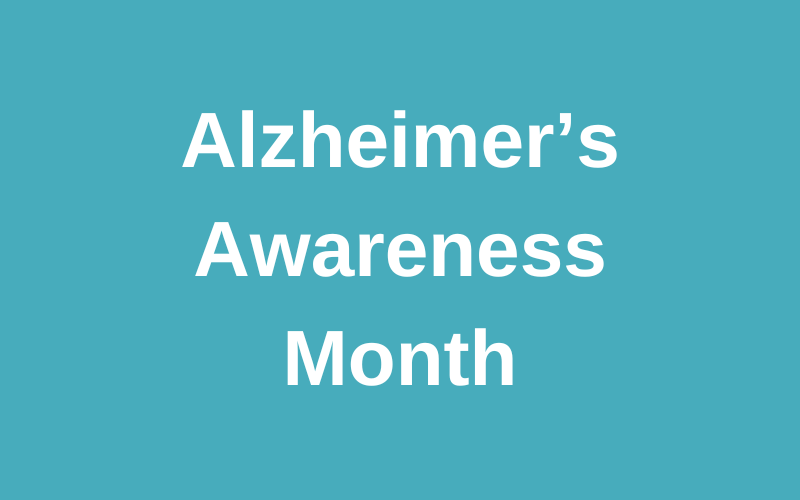
Lapses in memory, confusion, and other cognitive issues can cause seniors to worry about the possible onset of dementia. Older adults should be aware that several treatable medical conditions can cause symptoms that mimic those of dementia or Alzheimer’s disease, like the ones that follow.
Firstly, as soon as seniors notice difficulties with their cognitive faculties, it’s important to schedule an appointment with a doctor. Upon an exam, the physician may be able to identify a simple, treatable condition and recommend treatments that relieve the worrisome symptoms.
Plus, knowing what illnesses mimic dementia can help seniors receive an accurate diagnosis. Families of elderly loved ones can also advocate with the doctor to ensure the proper course of treatment. Here are conditions that can cause worrisome dementia-like symptoms.
1. Medication Side Effects
Taking new medications can be the start of memory problems. Cognitive impairment is a common side effect of certain drugs, especially in the older population. Medication toxicity is responsible for 12 percent of cases where an older individual experiences cognitive issues and suspects dementia.
The prescription drugs most known by medical professionals for causing memory deficits include those used for sleep, urinary incontinence, anxiety, pain, and allergies. Over-the-counter medications that are designed to treat these aforementioned health conditions can also affect a senior’s mental functioning.
About 42 percent of all seniors take five or more prescription drugs. Polypharmacy (taking several drugs) may be the culprit when seniors experience an inability to remember information or think clearly. Furthermore, the buildup of medications in the aging body can create problems over time.
2. Covid-19 and Other Respiratory Infections
Delirium may be caused by an untreated respiratory infection. Symptoms, such as changes in alertness, memory, attention, and orientation, resemble those of dementia. The body responds to the infection, triggering a chemical change in the brain that can cause confusion in seniors.
The onset of dementia happens slowly, with memory changes gradually worsening over the years—but delirium manifests suddenly. Unless caused by a stroke, dementia is rarely sudden. Any abrupt changes in mental status could be due to delirium, which are often caused by an infection.
Memory lapses, trouble concentrating, and being unable to complete tasks simultaneously are reported by elderly patients recovering from Covid-19. Trouble with thinking due or memory due to long Covid can last for weeks or months, with older adults experiencing worsened memory symptoms.
3. Urinary Tract Infections
Dementia-like symptoms may occur when a senior suffers from a urinary tract infection (UTI). Symptoms of a UTI manifest differently in older people than younger ones, making it harder to receive a correct diagnosis. Typical symptoms, like burning with urination, may not be present in seniors.
In aging people, changes in mental status can occur without classic UTI symptoms. Fortunately, a urine test can detect the presence of a UTI. The senior’s physician can prescribe antibiotics, which resolve both the UTI as well as the accompanying cognitive issues.
4. Insomnia
Sleep disruptions or insomnia may be responsible for the confusion, mental fatigue, irritability, and lack of focus that some seniors experience. Insomnia is a common condition, affecting 30 to 48 percent of aging adults. Receiving quality rest is necessary to protect the aging brain.
Seniors can improve their sleep hygiene and reduce the unwanted cognitive effects of insomnia. Reduce daytime naps, avoid caffeinated beverages in the evening, and follow a consistent sleep schedule. Enhance the sleep environment by drawing curtains and adjusting the thermostat.
5. Dehydration
Older adults are prone to dehydration, which can produce dementia-like symptoms. Foggy thinking and confusion can result when the senior does not have a sufficient daily fluid intake. Seniors may not realize they are dehydrated, since their thirst mechanism becomes weakened with age.
A check of the senior’s urine can identify whether dehydration is responsible for the confusion. Dark yellow or brown urine indicates a lack of fluids. Reverse the cognitive symptoms with intravenous fluids. Prevent dehydration altogether by drinking six eight-ounce glasses of non-caffeinated liquids daily.
6. Normal Pressure Hydrocephalus
Normal pressure hydrocephalus (NPH) occurs when an excess of cerebrospinal fluid accumulates in the brain’s ventricles and damages brain tissue. Dementia-like symptoms of this rare condition include mood changes, depression, difficulty responding to questions, loss of bladder control, forgetfulness, and confusion.
Trouble thinking is a complication of NPH. Changes in walking, thinking, bladder control, or mood should prompt a visit to a healthcare provider. A diagnosis can be made after an MRI or CT scan of the brain. Treatment involves surgically placing a shunt in the brain to drain excess fluid.
Several other conditions, such as alcohol abuse, depression, heart disease, vitamin B12 deficiency, and thyroid problems, among others, can also be the culprit when cognitive issues emerge. Upon treatment of these ailments, cognitive problems can be reversed and mental clarity improved.
Dementia Care from Assisting Hands

Seniors who suffer from an illness that causes dementia-like symptoms should receive treatment to resolve cognitive problems. But when the elderly individual receives a dementia diagnosis, families should prepare for the future by considering dementia care from Assisting Hands Home Care.
We are a well-recognized home care agency that provides quality in-home Alzheimer’s and dementia care to older adults. Aging in place gives dementia patients the comfort and security of living in a familiar environment, which in turn prevents confusion and disorientation.
Our qualified dementia caregivers are trained to identify dementia symptoms and respond with compassion. We are experienced in de-escalating aggression with positive reinforcement, reducing or preventing wandering, discreetly handling incontinence issues, and giving timely medication reminders to ensure medication compliance.
Additionally, professional caregivers offer comprehensive non-medical care. We shop for groceries, prepare nutrient-rich meals, provide transportation to doctors’ offices and senior centers, perform light housekeeping, and assess the home for hazards. Caregivers also serve as excellent companions to prevent social isolation and loneliness.
When a dementia diagnosis has been made, your elderly loved one will benefit from the dependable memory care from Assisting Hands Home Care. We are committed to serving aging adults living in Dallas, TX | Richardson, TX | University Park, TX | Coppell, TX Dallas, Texas, and the neighboring areas. Call today to schedule an in-home consult.







